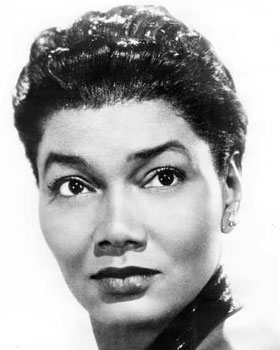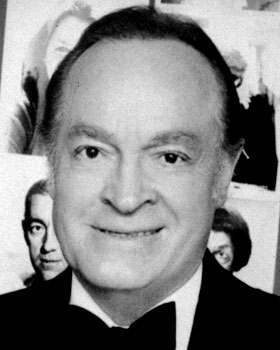Pearl Bailey
Pearl Bailey was an actress and singer with a sexy, throaty drawl and a droll sense of humor who once was called America's "ambassador of love." A preacher's daughter, "Pearlie Mae" sang and danced her way from Depression coal mining towns to Broadway and into the hearts of America as the star of the black "Hello, Dolly!"
Known to the world as a singer, comedian, stage, film and television actress, social and political activist, author of six books, and wife and mother, Bailey considered herself primarily a singer but scoffed at all labels.
Appropriately for the daughter of a Holy Roller-style revivalist, the Rev. Joseph James Bailey, she attributed her talent to God.
Bailey began her career as a 15-year-old amateur night contest winner at the Pearl Theatre in Philadelphia. Singing and dancing to "Talk of the Town and "Poor Butterfly," she won $5 and a two-week engagement. Inspired, Bailey left school for vaudeville, singing and dancing with Noble Sissle's band, then to Broadway with remarkable success in "Arms and the Girl," "Bless You All" and "All the Fine Young Cannibals."
It was on the movie set of "Porgy and Bess" (1958) that Bailey won an early skirmish for black civil rights by demanding the elimination of "undignified and unnatural" Negro dialect from the George Gershwin folk drama. "There's a lot of people out there waiting for a dialect, so let's talk the way we really talk, without the 'dems, doeses and deses,'" she told reporters. "We don't talk like that. Maybe we did 50 years ago, but not now." Other noted films are "Carmen Jones," and "St. Louis Blues."
In 1967 David Merrick selected Bailey to play Dolly Levi in the black version of "Hello, Dolly!" Audiences and critics alike were at her feet. Delighted with the accolades and the role, for which she won a special Tony award, Bailey told Newsweek: "All this has been worth waiting for. At last I can sing, dance, say intelligent words on stage, love and be loved and deliver what God gave me — and I'm dressed up besides."
Described as "the mother of the world," by her manager Stan Irwin, Bailey's service to humanity was far-reaching. She served as a delegate to the United Nations under the Ford, Reagan and Bush administrations. "She was a very spiritual woman and she never recognized color. Her ideology was, 'We are humans.'"
Related stars
|
|





Share a thought about Pearl Bailey